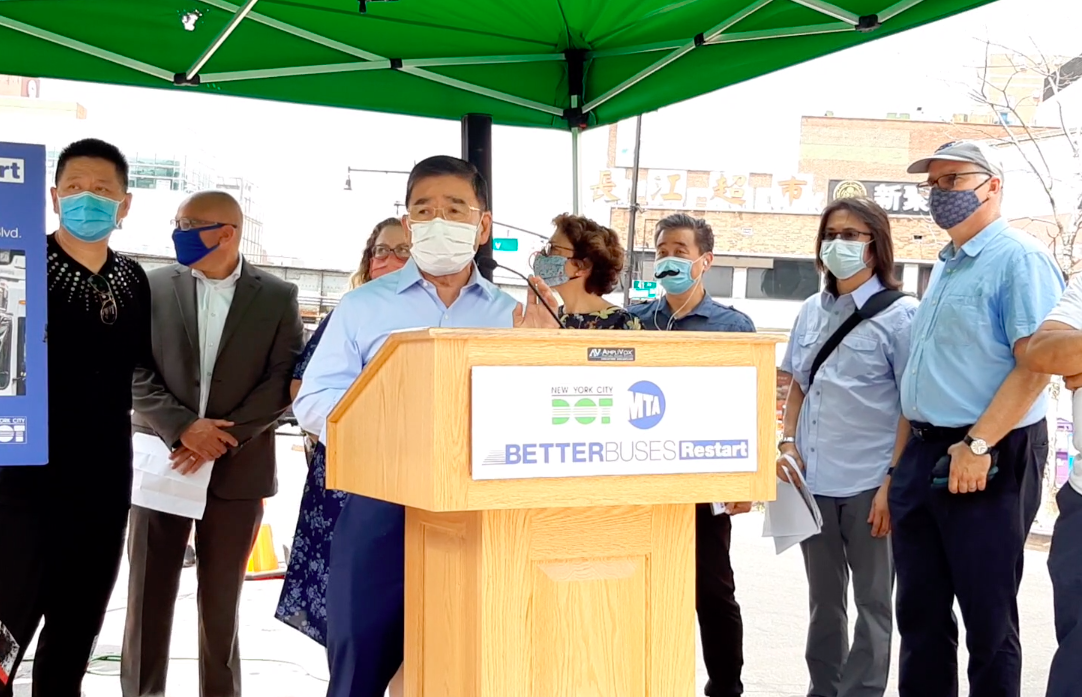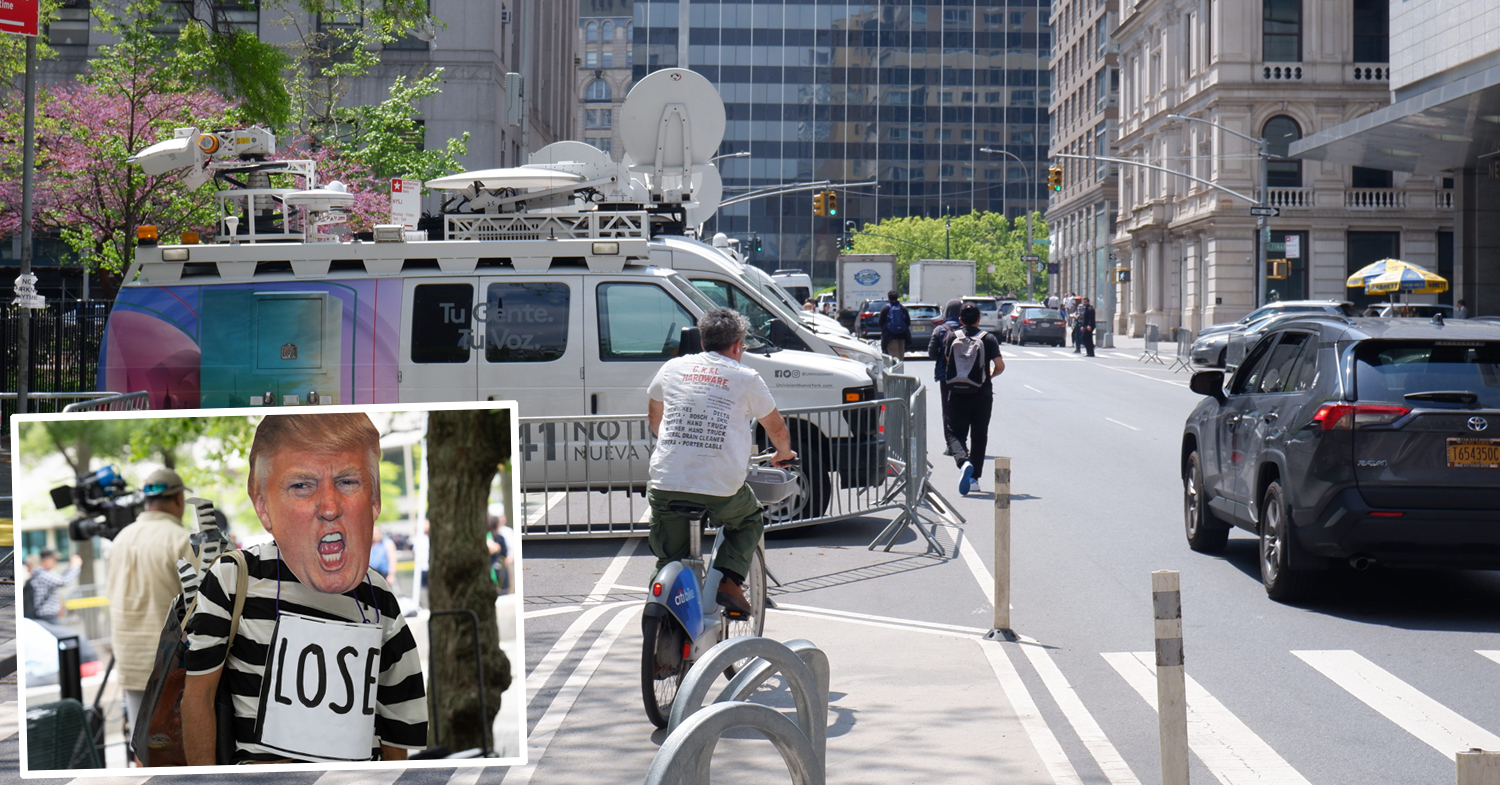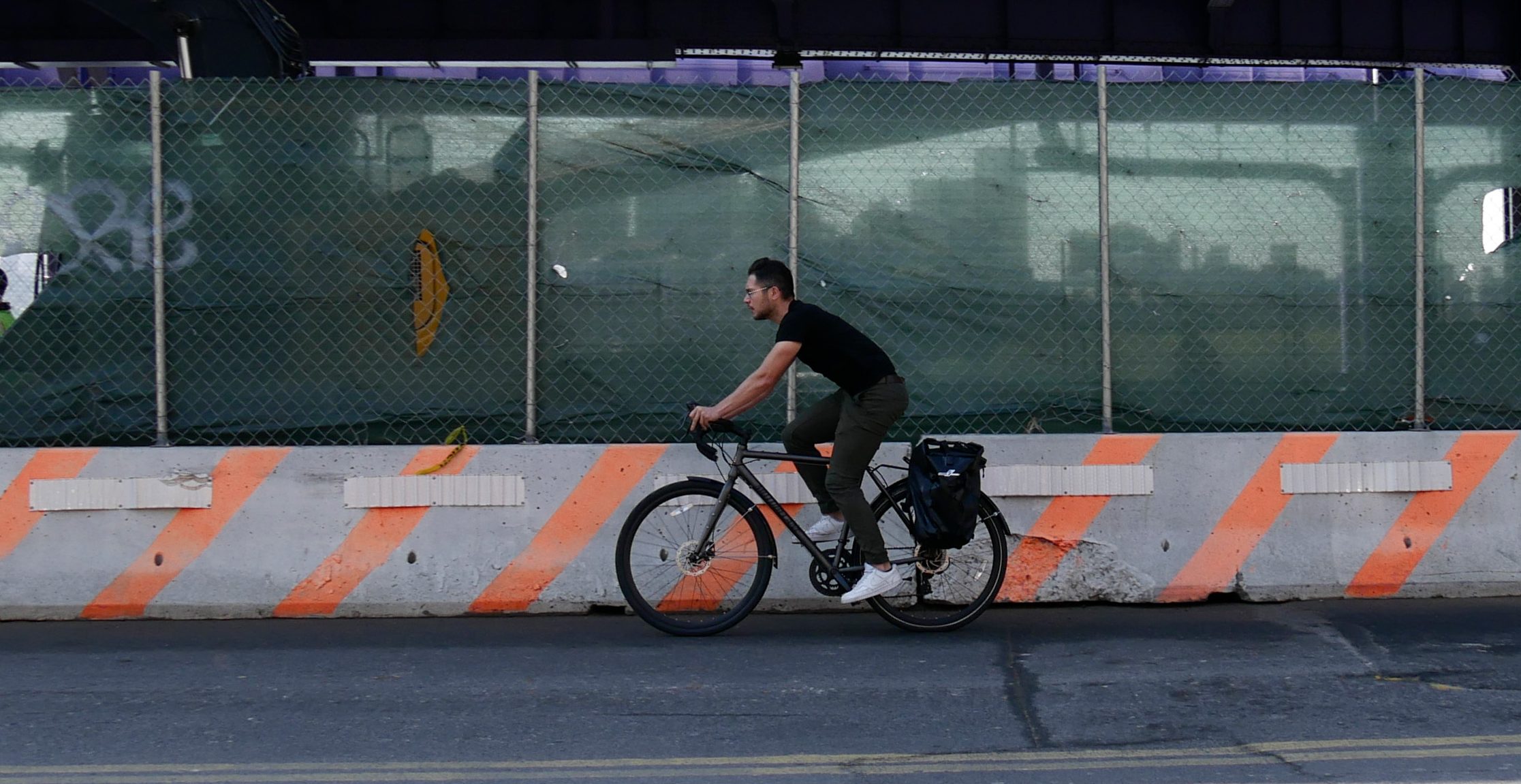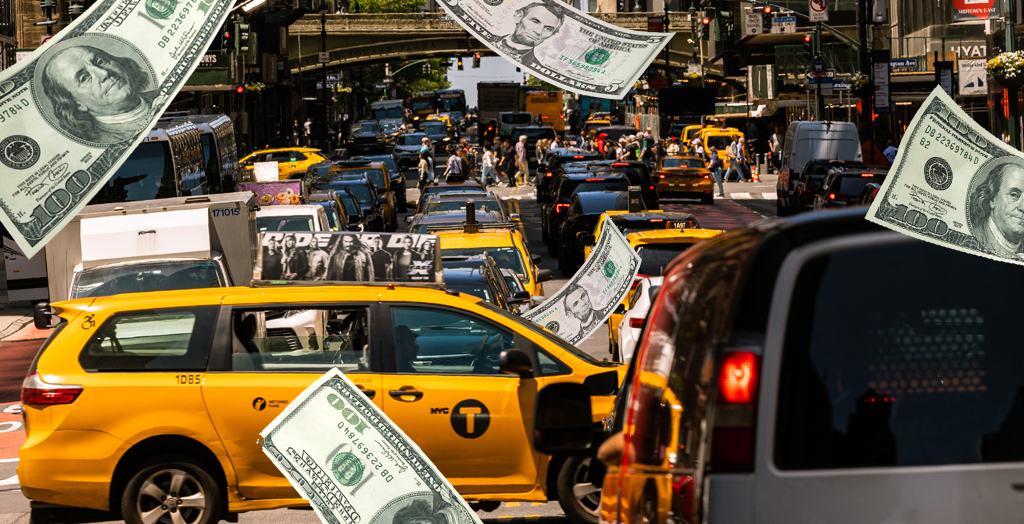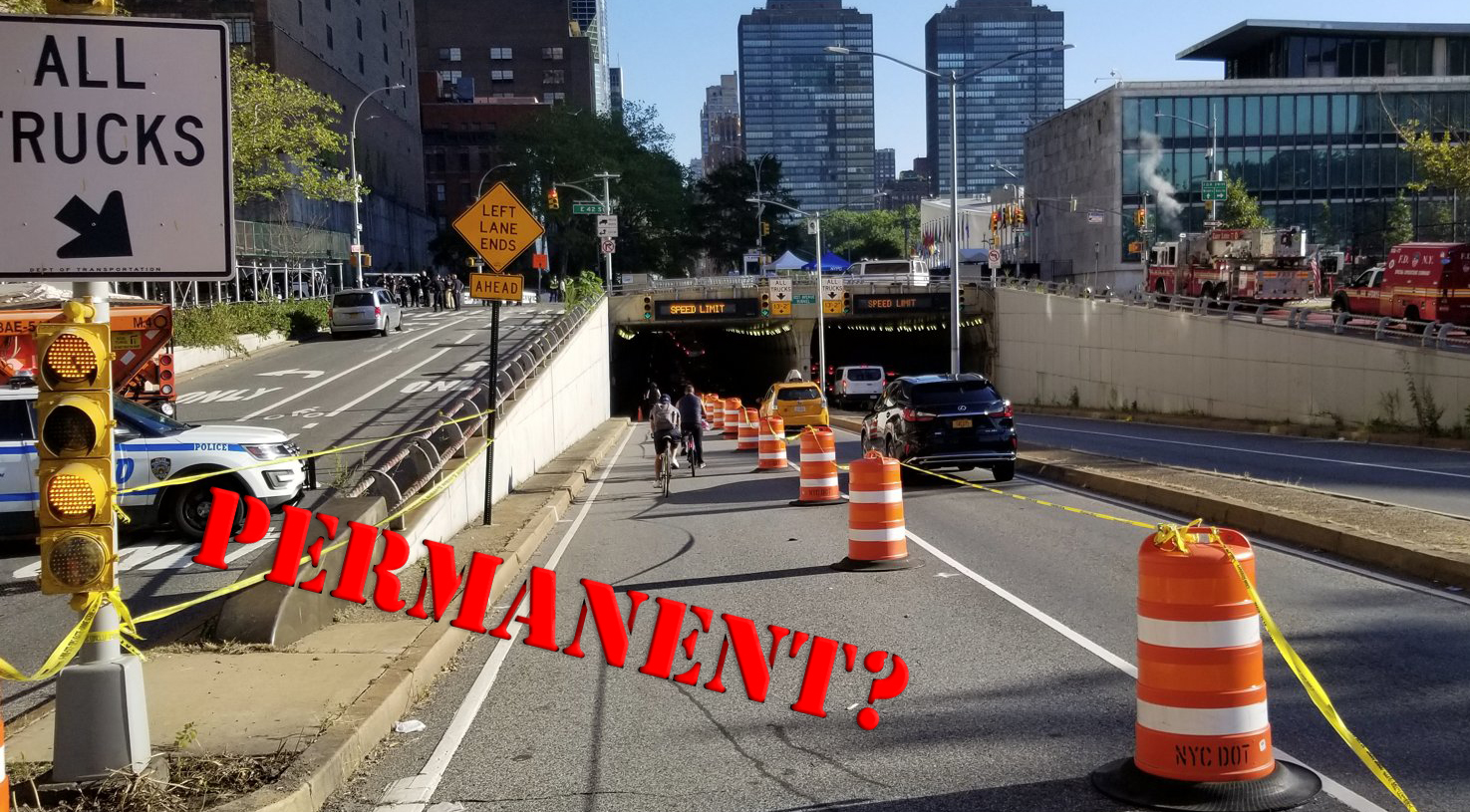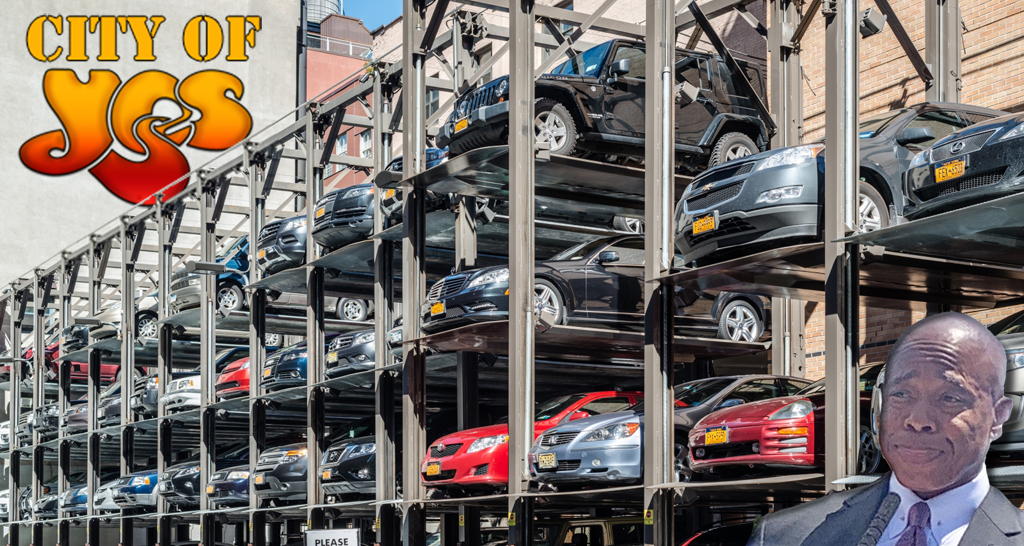The city can resume work on the long-delayed Flushing busway after a Queens judge today denied opponents’ request for an injunction on the project — a victory for supporters not only of transit, but for believers that the city does indeed have the power to make minor changes to the streetscape without getting public approval first.
Queens Supreme Court Judge Kevin Kerrigan's ruling, which also nullifies the temporary restraining order he put in place in November, now allows the city to again start laying down the red paint and installing signage as part of its plan to turn .3 miles of Main Street into a car-free busway between Northern Boulevard and Sanford Avenue, though he did not rule on the merits of the case itself.
“The city can proceed now with the busway [though Kerrigan may still] make a determination as to the lawsuit intended to stop it,” said Randall Eng, a former judge who represents the busway opponents in what is called an Article 78 proceeding, based on the statute that allows the public to sue municipal or state authorities on the grounds, say, that they don't have the power to do certain things without specific legislative approval.
Such suits are rarely successful — indeed, Article 78 cases brought by opponents of the 14th Street busway and the Central Park West protected bike lane failed to halt the transit and street safety improvements.
In this case, opponents claim that the busway would have a severe “negative impact” on the community by hurting local businesses since people would no longer be able to drive their private vehicles to the commercial strip. But a Main Street busway actually would help local businesses, according to data from the DOT. According to a 2015 study of shoppers on Main Street, only 17 percent of people arrived by cars, while 27 percent arrived by bus. Even fewer people, just 4 percent, parked on the usually congested corridor in front of a storefront.
And even as Kerrigan did not rule on the full case, he did say petitioners failed to show any evidence that the busway would hurt businesses. He also noted that, contrary to the lawsuit's argument, the DOT did take post-pandemic bus usage into account by providing data that a whopping 1.9 million people rode the bus lines that service Main Street in just one month in October.
"(Their) additional opinion that the Busway will create additional congestion on side streets that will 'likely' deter people from driving to Flushing and thus inflict 'devastating' harm on local businesses is not based upon any objective data, but is entirely speculative," Kerrigan wrote in his nine-page order. "The submissions on this motion to not establish a likelihood of success by petitioners on the issue of whether the DOT's Busway plan was arbitrary, capricious or without a rational basis. They have also failed to demonstrate that irreparable harm would result if a preliminary junction were not imposed. Indeed, they have failed to show evidence that any harm would result at all."
Mayor de Blasio announced the Flushing busway in June, and promised it would be built expeditiously to help move the thousands of essential workers who rely on public transportation to get to and from work. The busway would serve at least a portion of Queens routes that have more than 150,000 commuters daily.
But de Blasio's plans ground to a halt after several Flushing lawmakers — including Council Member Peter Koo, who misappropriated Black Lives Matter rhetoric in his opposition — hired the big-time law firm of Meyer Suozzi to champion their case. The firm filed its Article 78 papers on Nov. 13 and got a temporary restraining order that halted DOT's work on the busway ... until now.
Advocates were cheered by the partial victory.
"Today's decision is a huge victory for 150,000 bus riders across Queens and the Bronx. Citywide, judges have now ruled decisively that when riders win well-deserved priority on busy streets, opponents can't sue and get their way," Riders Alliance Senior Organizer Jolyse Race said in a statement. "Just as Trump and his supporters can't overturn the vote, neither can courts 'invade the province' of transportation policymakers on behalf of a few rich NIMBYs."
The mayor, who admitted in October that he won't meet his own target of installing 20 miles of dedicated bus lanes and car-free busways in 2020, applauded the judge's decision.
“This ruling is more than just good news for the 150,000 New Yorkers who will use the Flushing Main Street busway every day. It’s a victory for everyone who believes that mass transit is the future of this city and the engine of our economic recovery," de Blasio said in a statement. "New York City is proud to offer safe, reliable, and fast transit options for riders in Queens and across the five boroughs, and we look forward to building on this success with even more Better Buses initiatives this coming year.”
And MTA Bus President Craig Cipriano said in a statement that that this busway — along with hopefully more to come across the city — will help move people safely and efficiently.
"This is great news for people working in and traveling to and from downtown Flushing – busways have proven to speed up transportation for large amounts of travelers in an environmentally and community-friendly way, and have the potential to bring more shoppers to a commercial district than cars alone ever could," said Cipriano. "We look forward to operating a more efficient and reliable service in this part of Queens once this busway is in place, and everywhere as more busways are installed across the city.”
A full ruling on the opponents' suit is pending.
